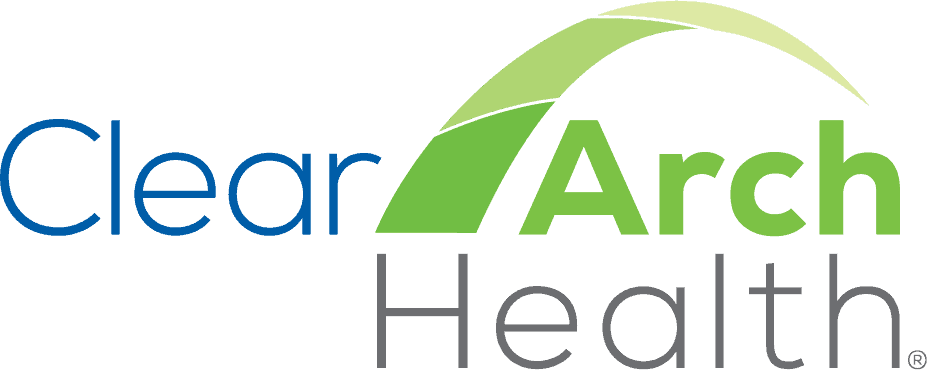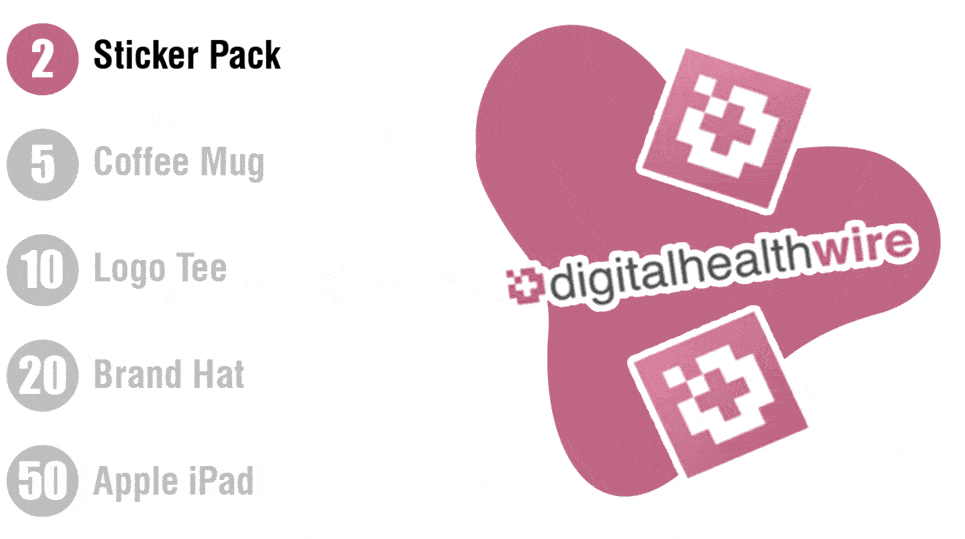|
Transcarent Acquires 98point6 Tech | Best Buy + Atrium
March 9, 2023
|
|
|

|
|
Together with
|

|
|
|
“Don’t focus on your competitors, focus on the needs of the marketplace. If you spend too much time listening to the competition you might not hear what the market’s trying to tell you.”
|
|
New Ocean Health Solutions CEO Hal Rosenbluth
|
|

|
|
Employer-focused care platform Transcarent is acquiring 98point6’s entire care delivery division in a transaction that’s reportedly valued at the 2023 Digital Health Number of the Year: $100M.
If you’re unfamiliar with Transcarent, the company is helmed by Glen Tullman, a CEO who knows how to get a deal done. Tullman is the former founder of Livongo and guided it through Teladoc’s $18.5B acquisition in 2020.
Transcarent’s virtual platform lets patients book virtual visits, schedule in-home care, meet with therapists, and manage their prescriptions all within the same solution.
- 98point6 technology will now power the front-end chat that Transcarent’s been using third-parties to handle. 98point6 also doubles Transcarent’s customer base to over 200 employers with a combined 4M employees. That’s a big jump from the 1M employees Transcarent currently supports.
- Although Transcarent has historically depended on contracted clinicians, it will now gain 98point6’s ~150 physicians, as well as aforementioned employer clients such as Boeing, Costco, and Chipotle.
At its core, the acquisition is about obtaining 98point6’s head start on AI, and bringing Transcarent’s digital front door in-house. Tullman told MedCityNews he was looking for “full control of the front-end process, because how you start determines where you end up… You don’t get a second chance to make a first impression.”
- What’s next for 98point6? First, a rebranding to 98point6 Technologies. Second, it will stop providing patient care and focus exclusively on licensing its software to health systems, and Washington-based MultiCare has already signed on as its first customer.
- The pivot allows 98point6 to push toward pure play SaaS margins by licensing its chatbot and engagement suite while it lets hospitals use their own doctors and nurses to take over the actual appointments.
The Takeaway
Transcarent is aiming to simplify the process of finding and receiving care, and 98point6’s front-end chat and affiliated provider group will help it do just that. Simplicity is the value proposition, and it seems like a good one to bring to an employer healthcare market where complexity is the enemy.
|




|
|
Discover Clear Arch Health’s RPM Platform
With ready-to-use devices, data-driven dashboards, and integrated analytics, Clear Arch Health’s turnkey RPM platform is designed to meet the evolving needs of care delivery. Find out how Clear Arch Health can help keep your providers connected to their patients and equipped with the actionable insights they need to improve outcomes.
|
|
Medication Success Starts Here
Medication Success starts with a smarter prescription. Find out how the Synapse Platform powers point-of-care solutions that provide the patient-centered insights necessary for successful therapies.
|
|
- Best Buy + Atrium: A new partnership with Atrium Health brought us our second Best Buy Health story of the week as the retailer pushes full-speed-ahead with its home care strategy. The goal is to bring Best Buy’s in-home technical support and device installation expertise to Atrium’s existing hospital-at-home program as the two develop a new HAH program to expand to other systems. If successful, the program could serve as a blueprint for plenty of other companies looking to help health systems transition care outside of the hospital.
- Primary Care Access Gaps: Over 100M Americans face barriers to a usual source of care, according to a new report from the National Association of Community Health Centers. The NACHC found that the number of patients at community health centers has grown by 24% since 2015, and that FQHCs are now preventing 15M Americans from being “medically disenfranchised.” The authors called for additional funding to support these health centers, especially since most crystal balls are filled with more rural hospital closures and PCP shortages.
- WeightWatchers Acquires Sequence: WeightWatchers is officially getting into the GLP-1 game after acquiring virtual weight management platform Sequence for a whopping $106M – about a 4x multiple on the $25M ARR that Sequence apparently achieves with “approximately 24,000 members across the US.” Sequence provides telehealth consults with dietitians and popular prescription medications such as Ozempic and Wegovy, so it’ll be interesting to see the type of numbers WeightWatchers scales up to with its 3.5M members (if it can avoid the regulatory gaze for long enough).
- UnityPoint and Presbyterian Health Merger: Iowa-based UnityPoint and New Mexico-based Presbyterian Health announced plans to merge into a new system with $11B in combined revenue across 40+ hospitals and 3k providers. The latest cross-market hospital merger rhymes closely with the recent Advocate-Atrium combination in that both the UnityPoint and Presbyterian brands will continue to operate in their local regions as they build a joint operating company on top of their existing operations.
- Generational Telehealth Differences: A CVS Health survey found that 76% of adults view telehealth as more convenient than other care options, with a similar share agreeing that it’s more flexible (75%), easier to schedule (75%), and quicker than alternatives (77%). Despite the cross-generation agreement over telehealth’s convenience, older Millennials are still the most likely to access telehealth services over the next year (69%), followed by Gen X (58%), Gen Z/younger Millennials (53%), and Baby Boomers (44%).
- VillageMD Scoops Up Starling Physicians: Walgreens-owned VillageMD acquired 30-location medical group Starling Physicians as it continues its nationwide expansion with a big move in Connecticut. Starling offers primary and specialty care (including cardiology, ophthalmology, endocrinology, nephrology and geriatrics) for over 200k patients, as well as services such as imaging and lab work. VillageMD now stands at over 700 locations and just gave a huge multi-specialty lift to its presence in the Northeast.
- Signify and Cardinal Team Up: Signify Health is teaming up with Cardinal Health to equip Signify clinicians performing in-home assessments with Cardinal’s OutcomesOne platform that helps verify whether patients are adhering to their medications. Bringing together Signify’s 11k mobile clinicians with Cardinal’s network of pharmacies and payors will reportedly help address medication management challenges for over 2.3M health plan members.
- Opioids Cost Hospitals $95B: Opioid use disorders now cost US hospitals over $95B annually, according to new analysis from PINC AI. Between 2017-2022, OUDs were associated with approximately 66M ED outpatient visits and 760k inpatient visits each year, putting a huge financial strain on many health systems since many OUD patients lack health coverage. Costs for OUD patients were 33% higher per ED visit and 8% higher per inpatient visit due to increased risks for organ failure, readmissions, and longer ICU stays.
- agilon Announces Acquisition of mphrX: Physician enablement company agilon health acquired interoperability startup mphrX to speed up its onboarding process and allow new providers to see value faster. The acquisition makes a whole lot of sense considering that agilon mentioned on its most recent earnings call that it was expecting a longer implementation period for new partner groups as it accelerates expansion and adds more features to its platform.
- Health Catalyst and INTEGRIS Data Program: Health Catalyst announced a three-year partnership with Oklahoma-based INTEGRIS Health to improve the health system’s analytics program. The agreement deepens the existing relationship between the duo with expanded access to Health Catalyst’s Tech-Enabled Managed Services (TEMS) and TEMS Chart Abstraction services. Health Catalyst will staff and manage INTEGRIS’ refreshed analytics program to deliver efficiencies through standardization, automation, and consolidation.
- Home‐Based Cardiac Rehab: Although many patients decline home-based rehab after cardiac events and procedures, those that participate might have 36% lower mortality risks. An AHA study (n = 1,120 VA patients, >68 yrs old) revealed that only 44% of eligible patients participated in 12-week home-based cardiac rehab (HBCR), which consisted of 9 telephone sessions, ongoing health documentation, and optional remote BP and weight monitoring. The HBCR participants had far lower mortality rates over 4.2 years than those who declined participation (12% vs. 20%).
|
|
Patient Engagement for a VP of Patient Experience
Nuance’s patient engagement guide for hospital execs gives a patient’s-eye view of the engagement experience and explores what the growing demand for convenient interactions means for the VP of Patient Experience.
|
|
Maximize Provider Administration by Minimizing Manual Tasks
Automated provider credentialing, payor enrollment, and continuous monitoring – all under one roof. Discover how Medallion’s all-in-one platform is helping health systems maximize their provider administration by minimizing manual tasks.
|
|
The New Staffing Landscape With connectRN
Flexibility is a key component of enabling nurses to deliver their best care without getting burned out. In this Digital Health Wire Q&A, we sat down with connectRN CEO Ted Jeanloz to discuss technology’s role in solving healthcare’s staffing challenges and the new ways that human-centered design can help support nurses.
|
|
|
Share Digital Health Wire
|
|
Spread the news & help us grow ⚡
|
|
Refer colleagues with your unique link and earn rewards.
|

|
|
|
|
Or copy and share your custom referral link: *|SHAREURL|*
|
|
You currently have *|REFERRALS|* referrals.
|
|
|
|
|